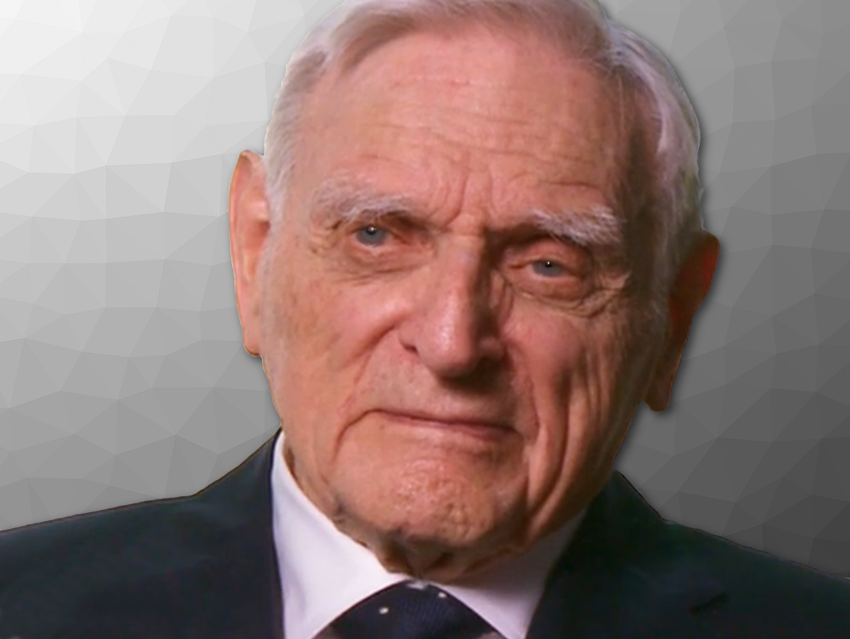Professor John B. Goodenough, The University of Texas at Austin, USA, passed away on June 25, 2023. His university describes him as “a dedicated public servant, a sought-after mentor, and a brilliant yet humble inventor.”
He is known for his contributions to the development of lithium-ion batteries. In particular, he was involved in the discovery of key cathode materials. He is known for developing the Goodenough-Kanamori rules for determining the sign of magnetic superexchange in materials and for developments in computer random-access memory. In 2019, he was awarded the Nobel Prize in Chemistry along with M. Stanley Whittingham and Akira Yoshino “for the development of lithium-ion batteries”.
John B. Goodenough, born on July 25, 1922, in Jena, Germany, studied mathematics at Yale University, New Haven, CT, USA, and physics at the University of Chicago, IL, USA, where he received his Ph.D. in 1952. He then joined the Massachusetts Institute of Technology (MIT), Cambridge, USA, and in 1976 became Professor of Inorganic Chemistry at the University of Oxford, UK. Since 1986, he has been a Professor at The University of Texas at Austin in the Departments of Mechanical Engineering and Electrical Engineering.
Among the 2019 Chemistry Nobel Prize and many other honors, John B. Goodenough has received the Japan Prize in 2001, the National Medal of Science in 2011, the Benjamin Franklin Award in Chemistry in 2018, the Copley Medal from the Royal Society in 2019, and the Japan Prize in 2001. He is a Fellow of the Electrochemistry Society and a Fellow of the U.S. National Academy of Inventors. The Royal Society of Chemistry (RSC) grants a John B. Goodenough Award in his honor.
Selected Publications
- Exploration of Metal Alloys as Zero-Resistance Interfacial Modification Layers for Garnet-Type Solid Electrolytes,
Jiang Cui, Jong Heon Kim, Shanshan Yao, Abdelbast Guerfi, Andrea Paolella, John B. Goodenough, Hadi Khani,
Adv. Funct. Mater. 2023.
https://doi.org/10.1002/adfm.202210192 - Development of an Electrophoretic Deposition Method for the In Situ Fabrication of Ultra-Thin Composite-Polymer Electrolytes for Solid-State Lithium-Metal Batteries,
Shanshan Yao, Somayyeh Kalami, Sunghyun Nam, John B. Goodenough, Hadi Khani,
Small 2023.
https://doi.org/10.1002/smll.202208252 - Lithium-based polyanion oxide cathodes,
Arumugam Manthiram, John B. Goodenough,
Nat. Energy 2021, 6(8), 844-845
https://doi.org/10.1038/s41560-021-00865-y - Li2S6-Integrated PEO-Based Polymer Electrolytes for All-Solid-State Lithium-Metal Batteries,
Ruyi Fang, Biyi Xu, Nicholas S. Grundish, Dr. Yang Xia, Yutao Li, Chengwei Lu, Yijie Liu, Nan Wu, John B. Goodenough,
Angew. Chem. Int. Ed. 2021.
https://doi.org/10.1002/anie.202106039 - Nontraditional, Safe, High Voltage Rechargeable Cells of Long Cycle Life,
Maria Helena Braga, Chandrasekar M Subramaniyam, Andrew J. Murchison, John B. Goodenough,
J. Am. Chem. Soc. 2018, 140(20), 6343–6352.
https://doi.org/10.1021/jacs.8b02322 - A Superior Low-Cost Cathode for a Na-Ion Battery,
Long Wang, Yuhao Lu, Jue Liu, Maowen Xu, Jinguang Cheng, Dawei Zhang, John B. Goodenough,
Angew. Chem. Int. Ed. 2013, 52, 1964–1967.
https://doi.org/10.1002/anie.201206854 - The Li-Ion Rechargeable Battery: A Perspective,
John B. Goodenough, Kyu-Sung Park,
J. Am. Chem. Soc. 2013, 135, 1167–1176.
https://doi.org/10.1021/ja3091438 - Challenges for Rechargeable Li Batteries,
John B. Goodenough, Youngsik Kim,
Chem. Mater. 2010, 22, 587–603.
https://doi.org/10.1021/cm901452z - Conducting-Polymer/Iron-Redox- Couple Composite Cathodes for Lithium Secondary Batteries,
K.-S. Park, S. B. Schougaard, J. B. Goodenough,
Adv. Mater. 2007, 19, 848–851.
https://doi.org/10.1002/adma.200600369 - LixCoO2: A new cathode material for batteries of high energy density,
K. Mizushima, P. C. Jones, P. J. Wiseman, J. B. Goodenough,
Mater. Res. Bull. 1980, 15(6), 783–789.
https://doi.org/10.1016/0025-5408(80)90012-4 - Metallic oxides,
John B. Goodenough,
Prog. Solid State Chem. 1971, 5, 145–399.
https://doi.org/10.1016/0079-6786(71)90018-5 - The Influence of Chemistry on the B–H Loop Shape, Coercivity, and Flux Reversed Times in Ferrites,
J. B. Goodenough,
Proc. Inst. Electr. Eng. 1957, 104B, 400.
https://doi.org/10.1049/pi-b-1.1957.0074 - Theory of the Role of Covalence in the Perovskite-Type Manganites [La, M(II)]MnO3,
John B. Goodenough,
Phys. Rev. 1955, 100, 564.
https://doi.org/10.1103/PhysRev.100.564
Also of Interest
- Nobel Prize in Chemistry 2019,
ChemistryViews 2019
The prize was awarded to John B. Goodenough, M. Stanley Whittingham, and Akira Yoshino for the development of lithium-ion batteries - Ceramic-Polymer Composite Electrolytes for Lithium-Ion Batteries,
ChemistryViews.org 2018.
Hydrogel-derived framework incorporated into a polymer matrix - Author Profile: John B. Goodenough,
Angew. Chem. Int. Ed. 2018.
https://doi.org/10.1002/anie.201806891 - Fuel Cells’ Noble Cause,
ChemistryViews.org 2011.
New design principle for finding fuel-cell catalysts could help preclude the need for expensive noble metals


